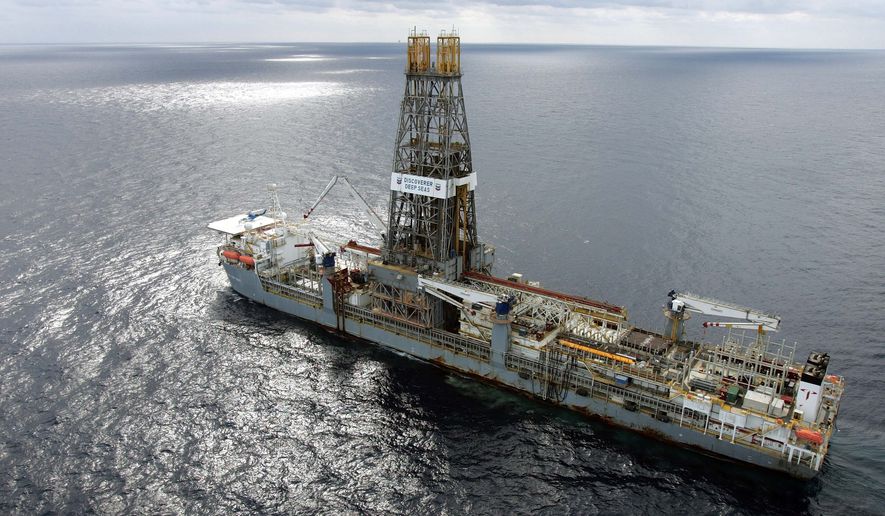The Trump administration last week held the largest oil and gas lease sale in the country’s history, offering up a whopping 77 million acres in the Gulf of Mexico — but only 815,000 of those acres received bids.
Analysts say the Gulf simply isn’t as profitable for oil companies as onshore shale deposits or as appealing as waters off the Atlantic and Pacific coasts.
“Oil prices are higher now than they were a year ago, but they are still a bit low to attract significant activity in the Gulf of Mexico due to competition from U.S. shale,” said Rene Santos, senior director for exploration and production and analysis at S&P Global Platts.
“Therefore, several operators will likely play it safe and continue to stick to shale development in the near/mid-term … particularly given the fact that potential new Gulf of Mexico projects might not start up for a decade or more in a world that could be seeing much weaker demand growth than today.”
The Interior Department touted the Gulf of Mexico sale in New Orleans as a key part of a broader effort to open virtually all of America’s waters to drilling and in the process to promote national energy security. While other recent Gulf offerings also have produced what on the surface look like underwhelming numbers, specialists say this sale clearly signals that the administration’s push to dramatically ramp up offshore drilling may not generate massive investment in the short term.
The Interior Department’s Bureau of Ocean Energy Management offered 14,431 tracts in the Gulf for lease totaling 77 million acres. Just 148 of those tracts, covering about 815,000 acres, received bids.
The sale generated 159 bids worth about $124 million.
Another Gulf sale in August produced similar results, leading some in the industry to caution against reading too much into the low figures last week. Interior officials said the sale represented a major step forward.
“Today’s lease sale is yet another step our nation has taken to achieve economic security and energy dominance,” said Joe Balash, assistant secretary for land and minerals management at Interior. “Today’s results will help secure high-paying offshore jobs for rig and platform workers, support staff onshore, and related industry jobs, while generating much-needed revenue to fund everything from conservation to infrastructure.”
Moving forward, oil industry insiders say, a massive uptick in interest in the Gulf is unlikely. They cite the relatively long time frame to get a project fully up and running — often as long as 10 years — as one key reason that offshore sites in the Gulf are less appealing than shale formations on U.S. land, which can be profitable in much less time.
Specialists also say the Gulf has been a drilling hub for so long that much of the easily recoverable fuel is gone, meaning the remaining leases represent more difficult, long-term projects. The energy security of the country, the industry argues, hinges on opening new areas.
“Industry has been operating in the Western and Central Gulf of Mexico for more than 50 years, and these areas are the backbone of U.S. energy production. In order to secure energy for our future needs and enhance our national security, our nation needs opportunities to explore for oil and natural gas in new offshore areas,” the American Petroleum Institute said in a statement after the sale. “Without this key access to new U.S. energy resources, we could see millions in investments, significant government revenues and thousands of jobs shift to other parts of the world.”
Environmental groups argue that the relatively low number of bids means the administration is willing to put coastal areas at risk for spills for the benefit of just of a handful of drillers.
“The results show that the Trump administration is wasting government resources to appease the oil industry and make a few rich companies richer, while throwing Gulf communities and the environment under the bus. And worsening the environment with more oil spills and greenhouse gas emissions in the process,” said Kristen Monsell, oceans program litigation director at the Center for Biological Diversity. “The results also send a strong signal that the administration must abandon its reckless proposal to open up even more of our oceans to oil and gas drilling.”
• Ben Wolfgang can be reached at bwolfgang@washingtontimes.com.




Please read our comment policy before commenting.